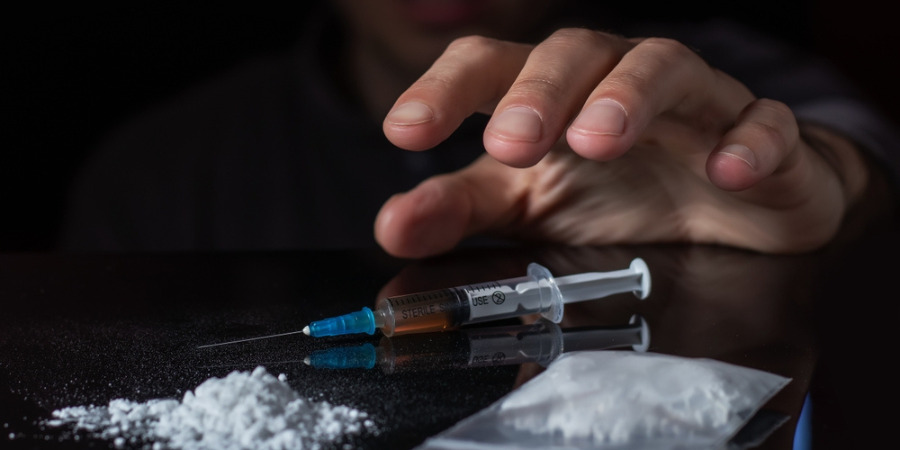Last Updated:
March 28th, 2025

Addiction recovery is deeply personal, and no two people’s journeys will be the same. However, there are some things that most people in recovery will find useful to know. This guide will be your blueprint for beating addiction.
Understanding addiction
Addiction is a chronic, relapsing disorder characterised by compulsively seeking out and using drugs or alcohol despite negative consequences. Quitting isn’t simply a matter of willpower – over time, chronic drug or alcohol use rewires the brain, making quitting harder and harder.
Your genes play a big part in your susceptibility to addiction, as do trauma, adverse experiences, and growing up in certain environments.
If you’re in the early stages of recovery, it’s important to understand the nature of addiction. Overcoming it isn’t easy, and you will need determination, support and forward planning to have the best chance of beating it. Cultivate a mindset of acceptance and kindness towards yourself – you are doing something difficult, admirable and brave. Building self-compassion can help you to move away from the self-destructive behaviours inherent to addiction.
Admitting you have a problem
The first step to getting addiction help is admitting that you have a problem. Many people spend a long time in denial before seeking help with their addiction, often downplaying it, justifying it to themselves or refusing to admit that it is a problem.
Denial is what allows you to continue engaging in harmful behaviours – so leaving denial behind makes it more difficult to continue behaving the same way.
Seeking professional help
While attempting to quit on your own is admirable, getting professional help is the safest way to tackle your addiction, and has the best chance of being successful. Addiction is multifaceted, and a good treatment programme will have multiple elements that treat your addiction on every front.
Detox is the first step in recovery, where you will undergo controlled withdrawal from substances and clear them from your system.
This is often much safer to do with medical supervision – particularly if you’re withdrawing from opioids, alcohol or benzodiazepines.
Medication
Medication can be used to make withdrawals safer, to support ongoing sobriety and to treat any underlying mental health problems.
Inpatient/outpatient rehab
While inpatient rehab is the gold standard for recovery, not everybody’s life can accommodate staying at a rehab clinic 24/7. Inpatient rehab will ensure you receive round-the-clock care and therapy, and a safe environment away from substances. Outpatient rehab will allow you to live at home while you receive treatment, enabling you to keep up with family, job or caregiving responsibilities.
Therapy
Therapy gives you a space to process the difficult emotions and experiences that played a role in your addiction and to build a new suite of tools and coping mechanisms to use during your recovery.
Groups
Most rehab programmes will offer group therapy, but you can also find groups and recovery-based meetings outside of rehab.
Group therapy is one of the most accessible and affordable forms of treatment, putting you into contact with others recovering from addiction and offering a community and a place to share experiences.

Getting the right mindset
Cultivate beliefs and attitudes that focus on self-compassion, growth capacity, and potential for change.
Remember that growth and change are possible.
Just as your brain rewires itself during your addiction, your brain can adjust back to baseline. This is called neuroplasticity – the brain’s ability to change and adapt over time in response to stimuli.
Be kind to yourself
Studies have shown that self-compassion is inversely related to addiction risk – lower self-compassion means a higher risk of addiction.
Fortunately, you can cultivate self-compassion – through therapy, mindfulness meditation and self-care. Showing up for yourself again and again will allow you to access self-trust and self-compassion.
Practise gratitude
Gratitude has been consistently highlighted as beneficial in studies on recovery, so much so that it has been named ‘recovery capital’. Some recovery-based organisations such as Narcotics Anonymous have integrated gratitude as a key component of their programme.
You can practice gratitude by reorientating your attention and noticing the small things. You can also work on it via journaling and meditation.
Building your support network
Addiction thrives on isolation, and surrounding yourself with people who can support you boosts your odds of success.
Along with friends and family, you can expand your support network by engaging with other people who are on the same journey as you. This can be through group therapy, recovery-focused organisations like Alcoholics Anonymous or Narcotics Anonymous or peer support.
Healthy habits
The habits you developed when drinking or using were maladaptive – and now that you’re sober there will be a space in your life that was once occupied by using. Having this time to fill can feel like a burden – but it’s also a huge opportunity to build a new life from the ground up.
The basics
Keeping clean, getting enough sleep, and eating well are easy to neglect when you’re in the throes of addiction. Getting the basics right is the foundation for the rest of your healthy habits.
Exercise
Choose an exercise you enjoy, as this will increase the likelihood of sticking with it. This can be as gentle as a short daily walk or as intense and competitive as team sports or weight lifting. Follow your passion and keep trying until you find something right for you.
Mindfulness
Mindfulness practices are proven to reduce addiction symptoms like cravings and to improve mental health. Introducing a simple mindfulness routine into your daily healthy habits gives you a grounding space to return to, and is protective against relapse.
New hobbies
Finding new hobbies is more than just a way to pass the time. You can revisit old passions that fell by the wayside in favour of addiction or pursue interests you never got the opportunity to explore previously. Hobbies also allow you to socialise with others in a structured way. Unstructured socialising can be difficult for people early in recovery while socialising in a class or workshop takes pressure off the interaction.
Relapse prevention
Your work on your mindset, support network and habits all lessen the likelihood that you will relapse. One of the most common predictors of relapse is poor self-care – this includes neglecting your physical and emotional needs. It can look like not eating properly or showering, but it can also look like bottling up your feelings.
Having a solid relapse prevention plan, knowing the signs of relapse, and putting in the work to build a recovery-focused mindset and environment will help you overcome the urge to relapse. It’s also important to know that all is not lost if you relapse. You can start again.
The path to healing
Healing from addiction is an ongoing journey – it isn’t a race that you can complete. Healing means radically restructuring your life, your priorities and the way you cope with life’s challenges. By putting the right interventions in place and committing to the process, you can build a life free of drugs or alcohol.
If you’re ready to take the first step on that journey, get in touch with us today.
(Click here to see works cited)
- NIDA (2011). Drug Misuse and Addiction. [online] National Institute on Drug Abuse. Available at: https://nida.nih.gov/publications/drugs-brains-behavior-science-addiction/drug-misuse-addiction.
- Cherry, K. (2021). Denial as a Defense Mechanism. [online] Verywell Mind. Available at: https://www.verywellmind.com/denial-as-a-defense-mechanism-5114461.
- Puderbaugh, M. and Emmady, P.D. (2023). Neuroplasticity. [online] National Library of Medicine. Available at: https://www.ncbi.nlm.nih.gov/books/NBK557811/.
- Burnette, J.L., Forsyth, R.B., Desmarais, S.L. and Hoyt, C.L. (2019). Mindsets of Addiction: Implications for Treatment Intentions. Journal of Social and Clinical Psychology, 38(5), pp.367–394. doi:https://doi.org/10.1521/jscp.2019.38.5.367.
- Chen, G. (2016). Does gratitude promote recovery from substance misuse? Addiction Research & Theory, 25(2), pp.121–128. doi:https://doi.org/10.1080/16066359.2016.1212337.
- Mindful Staff (2019). How to practice gratitude. [online] Mindful. Available at: https://www.mindful.org/an-introduction-to-mindful-gratitude/.
- https://www.gov.uk/government/publications/recovery-support-services-and-lived-experience-initiatives/part-1-introducing-recovery-peer-support-and-lived-experience-initiatives#the-role-of-peer-support
- Priddy, S.E., Howard, M.O., Hanley, A.W., Riquino, M.R., Friberg-Felsted, K. and Garland, E.L. (2018). Mindfulness meditation in the treatment of substance use disorders and preventing future relapse: neurocognitive mechanisms and clinical implications. Substance Abuse and Rehabilitation, [online] Volume 9(9), pp.103–114. doi:https://doi.org/10.2147/sar.s145201.
- Melemis, S.M. (2015). Relapse Prevention and the Five Rules of Recovery. The Yale Journal of Biology and Medicine, [online] 88(3), p.325. Available at: https://pmc.ncbi.nlm.nih.gov/articles/PMC4553654/.


